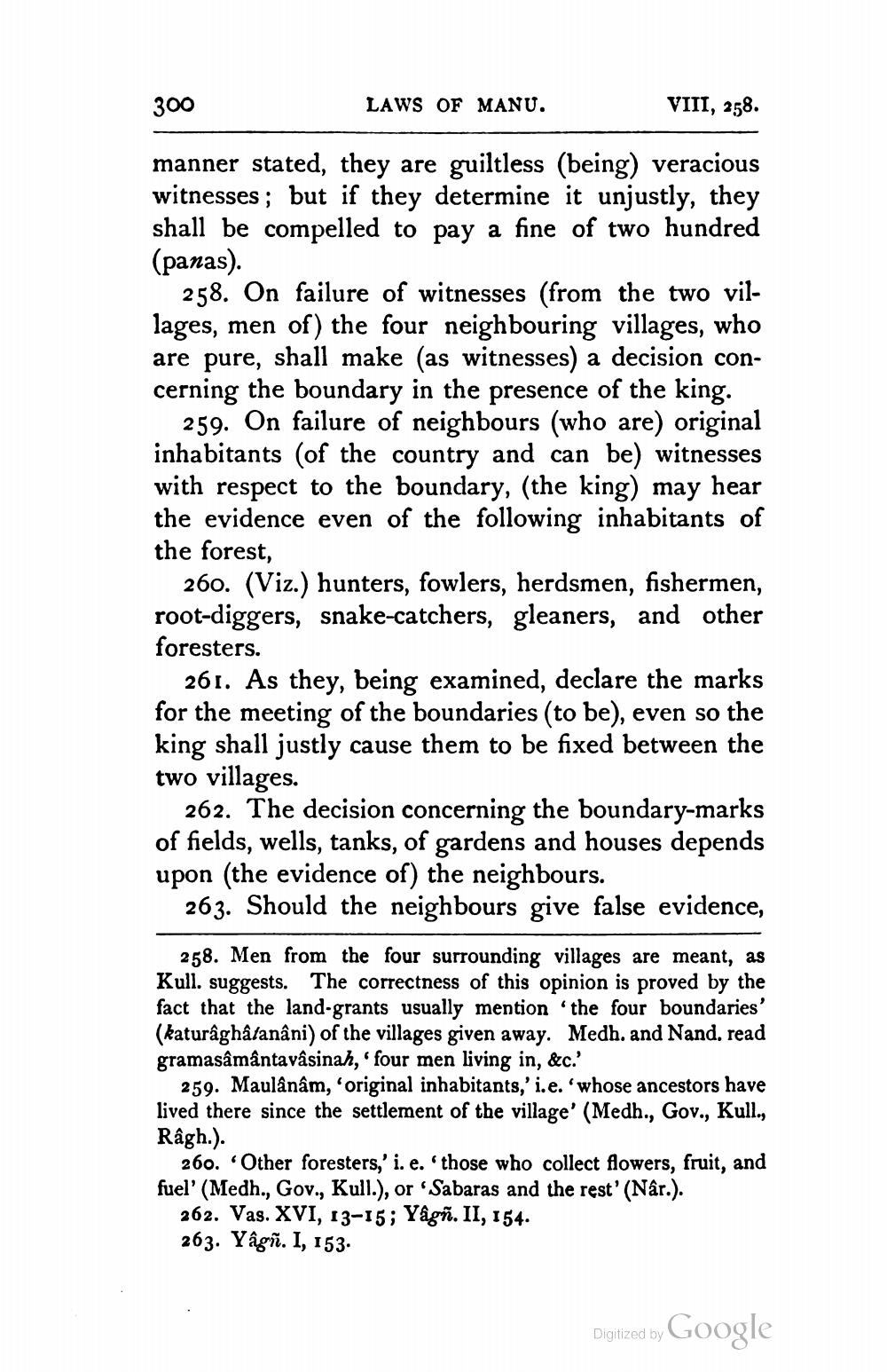________________
300
LAWS OF MANU.
VIII, 258.
manner stated, they are guiltless (being) veracious witnesses; but if they determine it unjustly, they shall be compelled to pay a fine of two hundred (panas).
258. On failure of witnesses (from the two villages, men of) the four neighbouring villages, who are pure, shall make (as witnesses) a decision concerning the boundary in the presence of the king.
259. On failure of neighbours (who are) original inhabitants (of the country and can be) witnesses with respect to the boundary, (the king) may hear the evidence even of the following inhabitants of the forest,
260. (Viz.) hunters, fowlers, herdsmen, fishermen, root-diggers, snake-catchers, gleaners, and other foresters.
261. As they, being examined, declare the marks for the meeting of the boundaries (to be), even so the king shall justly cause them to be fixed between the two villages.
262. The decision concerning the boundary-marks of fields, wells, tanks, of gardens and houses depends upon (the evidence of) the neighbours.
263. Should the neighbours give false evidence,
258. Men from the four surrounding villages are meant, as Kull. suggests. The correctness of this opinion is proved by the fact that the land-grants usually mention the four boundaries' (katurâghatanani) of the villages given away. Medh. and Nand, read gramasâmântavâsinah, four men living in, &c.
259. Maulânâm, original inhabitants,' i.e. 'whose ancestors have lived there since the settlement of the village' (Medh., Gov., Kull., Righ).
260. 'Other foresters,' i.e. those who collect flowers, fruit, and fuel' (Medh., Gov., Kull.), or .Sabaras and the rest' (Nar.).
262. Vas. XVI, 13-15; Yagñ. II, 154. 263. Yâgñ. I, 153.
Digitized by Google




